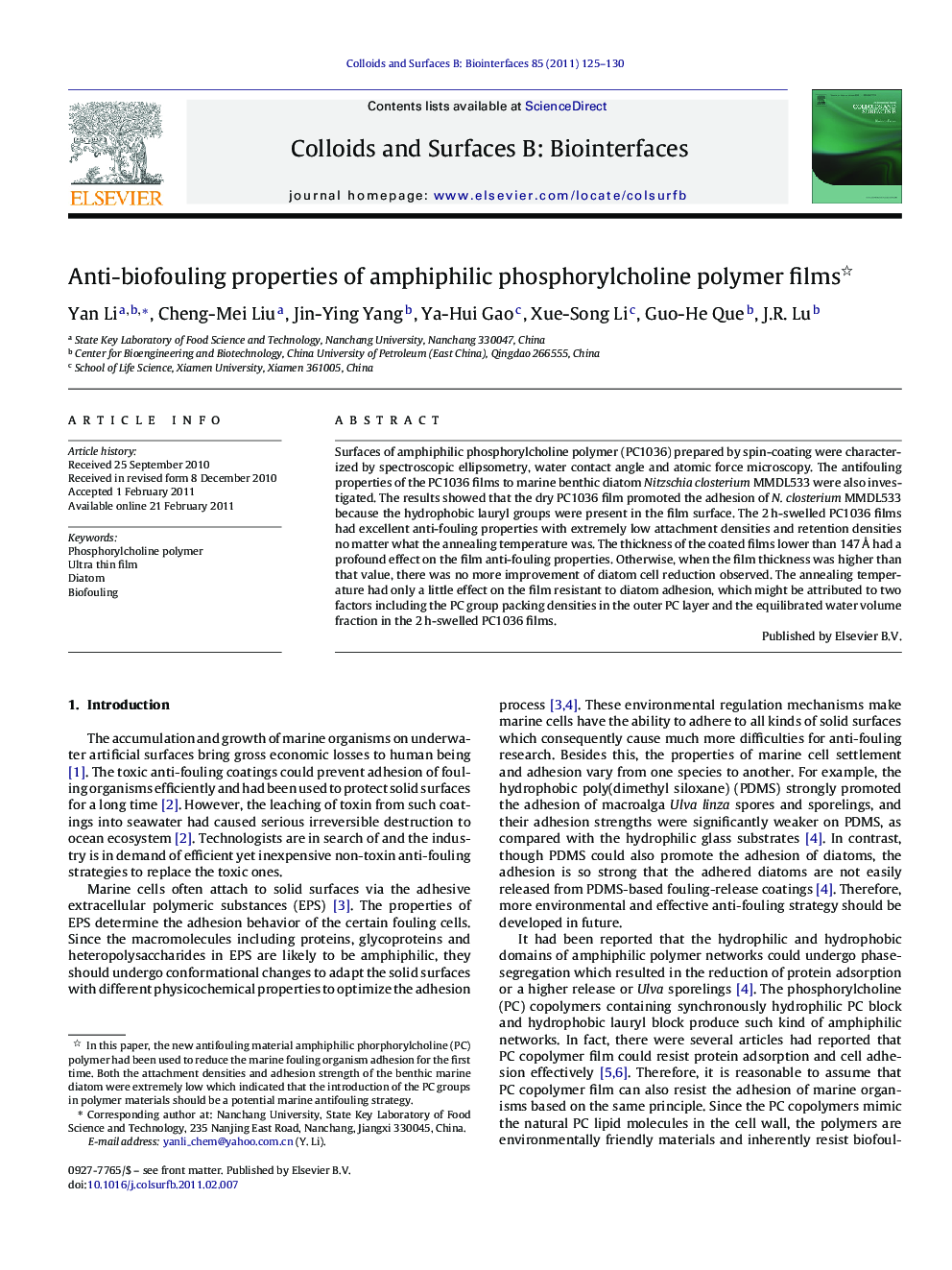| Article ID | Journal | Published Year | Pages | File Type |
|---|---|---|---|---|
| 601235 | Colloids and Surfaces B: Biointerfaces | 2011 | 6 Pages |
Surfaces of amphiphilic phosphorylcholine polymer (PC1036) prepared by spin-coating were characterized by spectroscopic ellipsometry, water contact angle and atomic force microscopy. The antifouling properties of the PC1036 films to marine benthic diatom Nitzschia closterium MMDL533 were also investigated. The results showed that the dry PC1036 film promoted the adhesion of N. closterium MMDL533 because the hydrophobic lauryl groups were present in the film surface. The 2 h-swelled PC1036 films had excellent anti-fouling properties with extremely low attachment densities and retention densities no matter what the annealing temperature was. The thickness of the coated films lower than 147 Å had a profound effect on the film anti-fouling properties. Otherwise, when the film thickness was higher than that value, there was no more improvement of diatom cell reduction observed. The annealing temperature had only a little effect on the film resistant to diatom adhesion, which might be attributed to two factors including the PC group packing densities in the outer PC layer and the equilibrated water volume fraction in the 2 h-swelled PC1036 films.
Graphical abstract. Attachment of Nitzschia closterium MMDL533 on PC1036 (dry and swelled) films with the thickness of 147 Å annealed at 150 °C. The dry PC1036 films did not resist diatom N. closterium MMDL533 adhesion as compared to the hydrophilic hydroxylated slides. However, the 2 h-swelled PC1036 films reduced diatom adhesion dramatically. It is speculated that the excellent antifouling ability of the amphiphilic polymer surfaces could be due to the surface reconstruction during the swelling process.Figure optionsDownload full-size imageDownload as PowerPoint slideResearch highlights► In this study we prepare the phosphorylcholine (PC) polymer films by spin coating. ► We investigate the resistance of the PC films to diatom adhesion and find the excellent antifouling properties of the swelled PC films. ► The swelled PC films reduced diatom adhesion apparently. ► The thickness influenced the PC film antifouling properties in a certain range. ► The annealing temperature has a little effect on the PC film antifouling properties.
